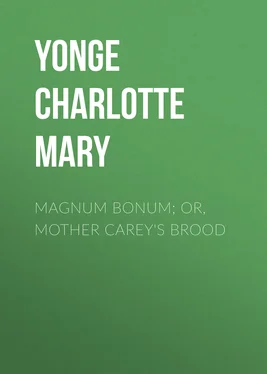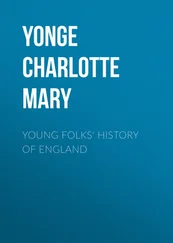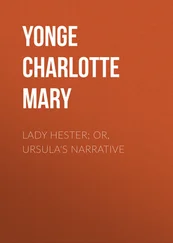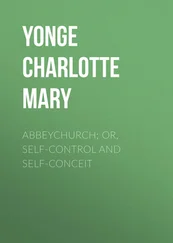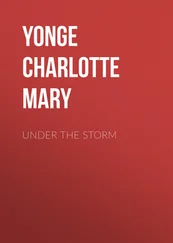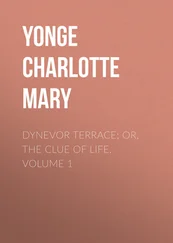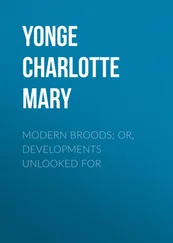Charlotte Yonge - Magnum Bonum; Or, Mother Carey's Brood
Здесь есть возможность читать онлайн «Charlotte Yonge - Magnum Bonum; Or, Mother Carey's Brood» — ознакомительный отрывок электронной книги совершенно бесплатно, а после прочтения отрывка купить полную версию. В некоторых случаях можно слушать аудио, скачать через торрент в формате fb2 и присутствует краткое содержание. Издательство: Иностранный паблик, Жанр: foreign_prose, literature_19, Европейская старинная литература, foreign_antique, на английском языке. Описание произведения, (предисловие) а так же отзывы посетителей доступны на портале библиотеки ЛибКат.
- Название:Magnum Bonum; Or, Mother Carey's Brood
- Автор:
- Издательство:Иностранный паблик
- Жанр:
- Год:неизвестен
- ISBN:нет данных
- Рейтинг книги:5 / 5. Голосов: 1
-
Избранное:Добавить в избранное
- Отзывы:
-
Ваша оценка:
- 100
- 1
- 2
- 3
- 4
- 5
Magnum Bonum; Or, Mother Carey's Brood: краткое содержание, описание и аннотация
Предлагаем к чтению аннотацию, описание, краткое содержание или предисловие (зависит от того, что написал сам автор книги «Magnum Bonum; Or, Mother Carey's Brood»). Если вы не нашли необходимую информацию о книге — напишите в комментариях, мы постараемся отыскать её.
Magnum Bonum; Or, Mother Carey's Brood — читать онлайн ознакомительный отрывок
Ниже представлен текст книги, разбитый по страницам. Система сохранения места последней прочитанной страницы, позволяет с удобством читать онлайн бесплатно книгу «Magnum Bonum; Or, Mother Carey's Brood», без необходимости каждый раз заново искать на чём Вы остановились. Поставьте закладку, и сможете в любой момент перейти на страницу, на которой закончили чтение.
Интервал:
Закладка:
The two little ones, Essie and Ellie, were equally graceful, or indeed still more so, as being still in their kittenhood, and their attitudes were so charming as to revive their aunt’s artistic instincts.
All the earlier part of the year, when her time was her own, it had been mere wretchedness and heart-sickness to think of the art which had given her husband so much pleasure, and, but for Allen, the studio would never have been arranged. But no sooner was her time engrossed, than the artist fever awoke in her, and all the time she could steal by early rising, or on wet afternoons, and birthday holidays, was devoted to her clay.
Before the end of the autumn she had sent up to Mr. Acton some lovely little groups of children, illustrating Wordsworth’s poems. She had been taught anatomy enough to make her work superior to that of most women, and Mr. Acton found no difficulty in disposing of them to a porcelain manufactory, to be copied in Parian, bringing in a sum that made her feel rich.
Vistas opened before her sanguine eyes of that clay educating her son for the Magnum Bonum, her great thought. Her boys must be brought up to be worthy of the quest, high-minded, disinterested, and devoted, as well as intellectual and religious. So said their father; and thus the Magnum Bonum had become very nearly a religion to her, giving her a definite aim and principle.
Unfortunately there was not much in her present surroundings to lead her higher. The vicar, Mr. Rigby, was a dull, weak man, of a wornout type, a careful visitor of the sick and poor, but taking little heed to the educated, except as subscribers and Sunday-school teachers. Carey had done little in the first capacity, Janet had refused to act in the latter.
His sermons were very sleepy performances, except for a tendency to jumble up metaphors, that kept the audience from the Folly just awake enough to watch for them. The hearer was proud who could repeat by heart such phrases as “let us not, beloved brethren, as gaudy insects, flutter out life’s little day, bound to the chariot wheels of vanity, whirling in the vortex of dissipation, until at length we lie moaning over the bitter dregs of the intoxicating draught.” Some of these became household proverbs at “the Folly,” under the title of “Rigdum Funnidoses,” and might well be an extreme distress to the good, reverent, and dutiful Jessie.
Mrs. Rigby was an inferior woman, a sworn member of the Coffinkey clique, admiring and looking up to her Serene Highness as the great lady of the place, and wearing an almost abject manner when receiving good counsels from her. Neither of them commanded respect, nor were they likely to change the belief, which prevailed at the Folly, that all ability resided among the London clergy.
CHAPTER XI. – UNDINE
Lithest, gaudiest harlequin,
Prettiest tumbler ever seen,
Light of heart and light of limb.
Long walks continued to be almost a necessity to Mrs. Joseph Brownlow, even when comparatively sobered down, and there were few days on which she was not to be met a mile or two from Kenminster, attended by a train of boys larger or smaller, according to the demands of the school for work or play.
The winter was of the description least favourable to collective boyish sports, as there was no snow and very little frost. The Christmas holidays led to more walking than ever. The gravelled roads of Belforest were never impassable, even in moist weather; and even the penetralia of the place had been laid open to the Brownlows, in consequence of a friendship which the two Johns had established with Alfred Richards, the agent’s son. They had brought him in to see the museum, and he had proved so nice and intelligent a lad, that Mother Carey, to the great scandal of her Serene Highness, allowed Jock to ask him to partake of a birthday feast.
When Allen came home at Christmas, he introduced stilt walking, and the Coffinkey world had the pleasure of communicating to one another that “Mrs. Folly Brownlow” had been seen with all her boys walking on stilts; and of course in the next stage, Mrs. “Folly” Brownlow herself was said to have been walking on stilts with all her boys, a libel, which caused Mrs. Robert Brownlow much pain and trouble in the contradiction.
“Poor Caroline! walking seemed to be necessary to her health, and she was out a great deal, but always walking along in the lanes on foot with her little girls—yes, I assure you, always on foot!”
It was thus that Caroline, with Babie and Armine, was descending a hill on the other side of Belforest Park, fully employed in picking the way through the mud from stone to stone, when a cry of dismay came to them from a distance, and whilst they were still struggling towards a gate, which broke the line of the high hedge, the two Johns came back at speed, crying—“Mother, Mother Carey! come quick, here’s Allen had a spill—came down on his shoulder—his stilt went into a hole, and he went right over; they think he must have broken something, he howls so when they touch him.”
Feeling her limbs and breath inadequate to bear her on as fast as her spirit flew forward, Caroline dashed through the slippery mud far too swiftly for poor little Babie to keep up with her, leaving one boy to take care of the little ones, while the other acted as her guide down the long steep lane. She was unable to see over the hedges till she came through a gate into a meadow, where Jock looked about, rubbed his eyes, and exclaimed—“Hallo, where are they?” pointing to the place where Allen had fallen, but whence he seemed to have been spirited away like Sir Piercie Shafton. However, Rob and Joe came running out of a farmyard at a little distance, with tidings that Allen had been taken in there, and replying to her breathless question, that they could not tell how much he was hurt.
A fine looking white-haired farmer met her next, saying—“Your young gentleman is not very seriously hurt, ma’am. I think a dislocation of the shoulder is the extent of the injury. He is feeling rather faint, but you must not be alarmed.”
It was spoken with a kind courtesy that gave her confidence, and the old man led her to the parlour, where his daughter-in-law, a gentle looking person, was most kindly attending on Allen, who lay on the sofa, exceedingly white, and in much pain, but able to smile at his mother, and assure her that he should soon be all right.
“Had they sent for a surgeon?”
“No, but they had sent for a bone-setter, who would be there in a minute.”
The old farmer explained that it would be two hours at the least before a surgeon could be fetched from Kenminster, while Higg, the blacksmith, who lived close at hand, was better for man and beast than any surgeon he had known, and his son had instantly set out to fetch him. As the mother doubtfully asked of his fitness, instances were quoted of his success. The family had a “gift,” inherited and kept up from time immemorial, and the farmer’s wife declared that he was as tender as possible; she had seen him operate on a neighbour’s child, and should not be afraid to trust him with one of her own.
The man’s voice was heard; they went out to speak to him, and Caroline was left with her boy.
“What do you think, Ali, my dear,” she said, kneeling by him, “I have often heard dear papa speak of the wonderful instinct of those bone-setting families.”
“I’d have nothing to do with a humbugging quack,” put in Bobus.
“He may humbug as much as he likes, if he’ll only get me out of this pain,” said poor Allen.
“He will only make it ever so much worse, and then you’ll have to have it done over again,” croaked Bobus.
“That is not the way to talk of it, Bobus,” said his mother. “I know a dislocated shoulder does not require any great skill, and that promptness is of greater use than knowledge in such a case.”
Читать дальшеИнтервал:
Закладка:
Похожие книги на «Magnum Bonum; Or, Mother Carey's Brood»
Представляем Вашему вниманию похожие книги на «Magnum Bonum; Or, Mother Carey's Brood» списком для выбора. Мы отобрали схожую по названию и смыслу литературу в надежде предоставить читателям больше вариантов отыскать новые, интересные, ещё непрочитанные произведения.
Обсуждение, отзывы о книге «Magnum Bonum; Or, Mother Carey's Brood» и просто собственные мнения читателей. Оставьте ваши комментарии, напишите, что Вы думаете о произведении, его смысле или главных героях. Укажите что конкретно понравилось, а что нет, и почему Вы так считаете.
